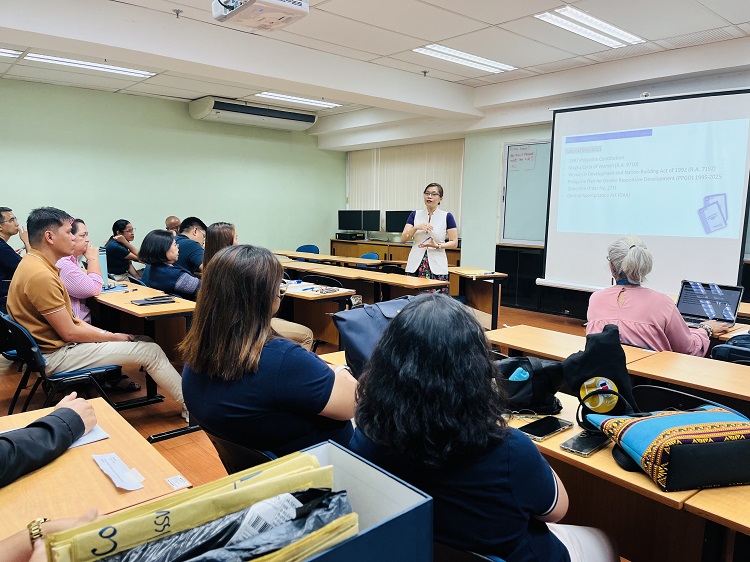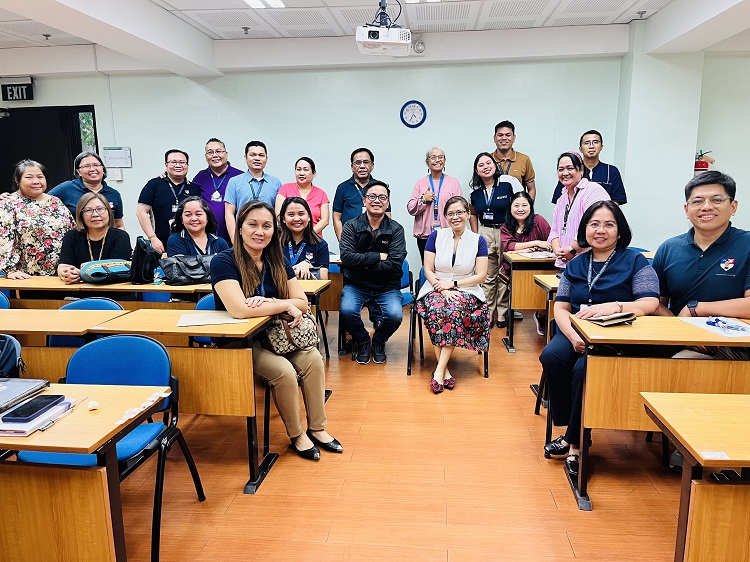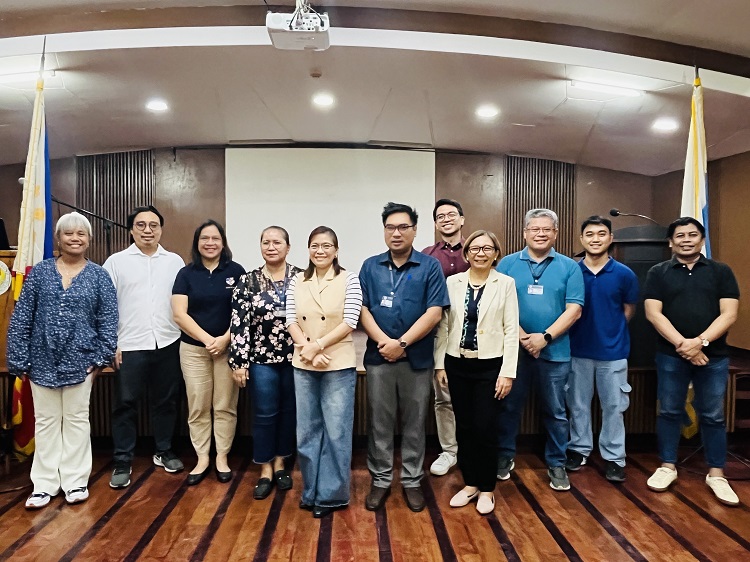In line with its commitment to gender-responsiveness, the Xavier University Gender and Development (GAD) Office, in partnership with the Human Resources Office (HRO), conducted orientation sessions for members of the GAD Focal Point System (GFPS) on 17 March 2025, at AVR 8, and on 23 May 2025, at AVR 1.

The sessions aimed to orient and equip GFPS members with a clear understanding of their roles and responsibilities in advancing gender and development initiatives within the university. These efforts form part of Xavier University's commitment to mainstreaming gender across all areas of operation.
Mr Lan Zonito Q Espinosa, Director of the Human Resources Office, welcomed the participants, which included representatives from the Office of the President, Higher Education, Basic Education, Administration, Mission and Ministry, and the Social and Development Cluster.
Ms Dennise Edwina S Gonzales, University GAD Officer, emphasized the vital role of the GFPS in planning, implementing, monitoring, and evaluating gender-related programs, activities, and institutional policies.
To guide members through the core principles of GAD, Atty Khristine Kay M Lazarito- Calingin, a certified Regional Pool GAD Resource Person, provided a review of basic GAD concepts, discussed the legal frameworks mandating GAD implementation, and presented strategies for integrating a gender lens into institutional practices. The session concluded with an in-depth discussion of the specific roles and functions of GFPS members.

Fr Frank Dennis B Savadera, SJ, Vice President for Mission and Ministry, expressed his gratitude to Atty Kay for her insightful presentation, noting how it deepened the community's awareness of gender-related issues. He observed that while gender discussions in some cultures can spark debates over issues such as pronoun usage— driven by a desire for precise personal identification—the Philippine context tends to be more neutral and less gender-specific, using pronouns like kita and sila. For Father Savadera, context is essential in shaping how gender concerns are understood. Language and culture, he noted, significantly influence these conversations, often adding layers of complexity.
He also stressed that gender is just one dimension of a broader conversation about equality. Ideological, social, and economic inequalities are equally pressing and must not be overlooked. When we talk about creating safe spaces, he said, the conversation should go beyond gender—it should also speak of boundary protection, inclusivity, and the overall well-being of every person.

In response, Atty Kay explained that Gender and Development (GAD) is not just about gender alone. Rather, it is centered on development and inclusion. In the Philippines, GAD operates within a broader development framework. While some countries may focus primarily on gender equality, the local implementation of GAD includes the creation of safe spaces and addresses socio-economic concerns as part of a more comprehensive agenda.
The orientation served as a platform for members to gain a deeper understanding of their roles within the institution. It clarified the significance of each member’s contribution to the overall functioning of the GFPS and emphasized the importance of teamwork, commitment, and dedication in achieving the gender and development agenda.
Overall, the GFPS orientation proved to be a successful initiative, strengthening both the collective understanding of GAD principles and the capacity of GFPS members to drive positive, inclusive change within Xavier University.